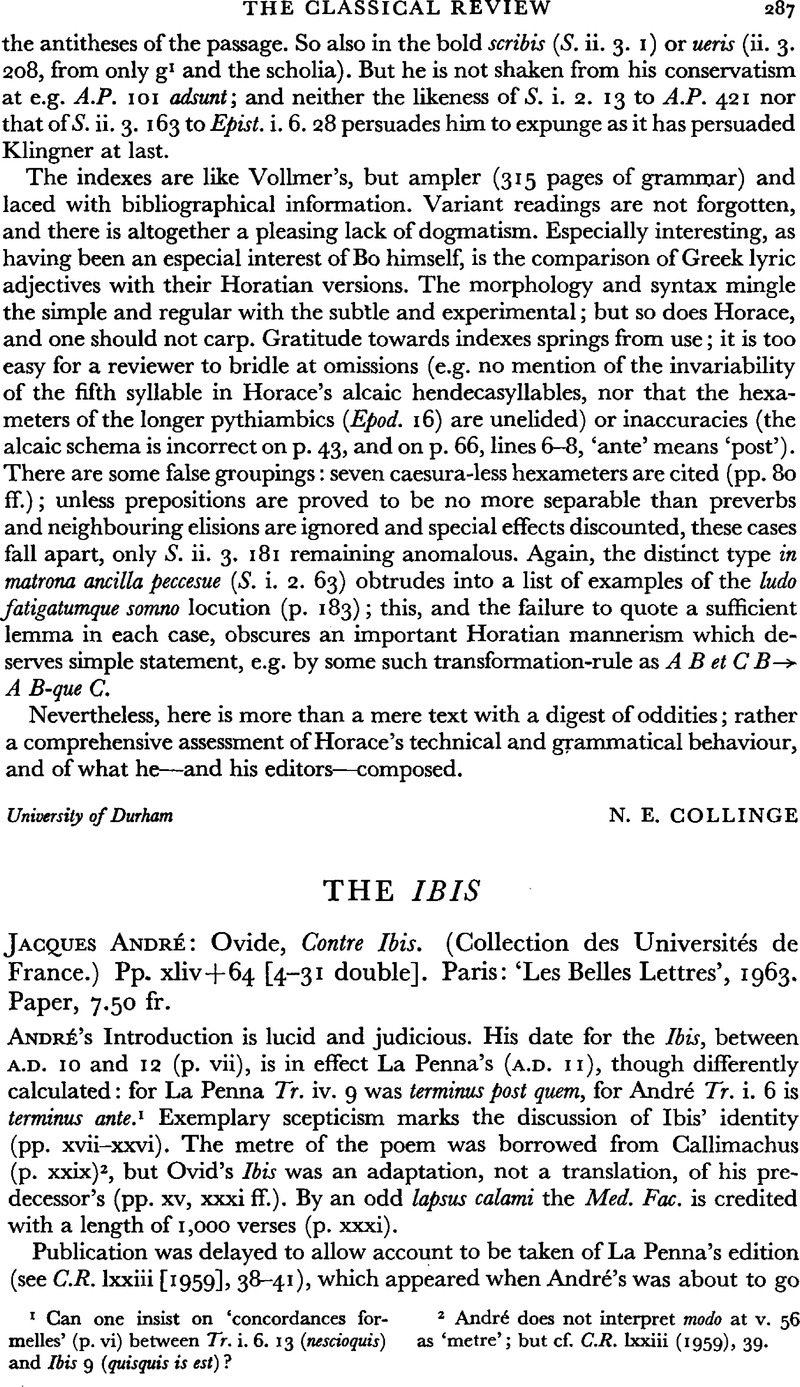No CrossRef data available.
Published online by Cambridge University Press: 27 February 2009

page 287 note 1 Can one insist on ‘concordances for-melles’ (p. vi) between Tr. i. 6. 13 (nescioquis) and Ibis 9 (quisquis is est)?
page 287 note 2 André does not interpret modo at v. 56 ‘metre’; but cf. C.R. Ixxiii (1959), 39.Google Scholar
page 288 note 1 TGPp (= La Penna's P1) V; FH cited intermittently. La Penna's conclusions on the tradition are in the main accepted by André.
page 288 note 2 At 189–90, Heinsius' palmary Teorum … sontibus having been given, we do not require to be told that it was accepted by ‘Bährens, Ehwald–Levy’—unequal yokemates!—for the information adds nothing to the merits of the conjecture.
page 288 note 3 The latter may be illustrated from the list of sigla on pp. 1–2, which yields the following: ‘Philippicus’—spelt correctly by La Penna; ‘bibl. Com. Leicester’ [incorrect now in any case], ‘in editione 1590’, ‘XII° s.’ [very odd syntax, this], ‘XIIe s.’; ‘Myrcilli’ for ‘Mycilli’; and so on.